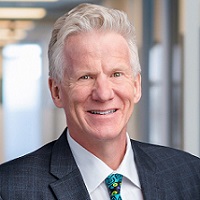 By Nick van Terheyden aka Dr Nick, Principal, ECG Management Consulting
By Nick van Terheyden aka Dr Nick, Principal, ECG Management Consulting
Twitter: @drnic1
Host of Healthcare Upside Down – #HCupsidedown
In a recent discussion with colleagues about the upcoming year and what we see changing in healthcare, someone commented that they expected to see population health finally focusing on social determinants of health. I was unconvinced—not because this isn’t an essential area, but because population health in America has for decades been marked by disappointing results.
These problems are not new, as evidenced by reports going back to 2012 and 2013 that highlight our fixation on clinical care and its delivery, which eclipses attention to population-based activities that offer efficient and effective approaches to improving the nation’s health.
Episode NOW on Demand
There are plenty of ways to explain this dynamic, but one stands out to me as an immigrant to this country. American culture is different—different from European culture, different from British culture, and different from African and Middle Eastern cultures, to mention a few that I have lived in and experienced. American culture is central to the fabric of our society and integral to healthcare but falls short on the community and social fabric. It is heavy on “me” and self-reliance, light on the ”we” of our community, in my experience. But that sense of the individual runs counter to the world we inhabit and the values in healthcare that we are striving for.
It all reminds me of the iconic scene in the Monty Python movie “The Life of Brian” where Brian is telling a crowd gathered in the street below his window that everyone is an individual. The crowd responds in unison: “Yes, we’re all different!”
Dr. Batja Mesquita has spent much of her career studying emotions—the way we perceive our own emotions, the way emotions govern our interactions with other individuals, and why emotions evolve differently in different cultures. A professor of psychology at the University of Leuven in Belgium and the author of “Between Us: How Cultures Create Emotions,” which was included in Publishers Weekly’s Best Books of 2022, Dr. Mesquita shares some of her work with me on this episode. Here are a few excerpts.
Emotions—inside and out.
“Most people think of their emotions as little creatures living in our head that can be turned on and off, like in the movie ‘Inside Out.’ They can be active or not active, but they’re always kind of the same. For those people who have seen the movie, anger is always red, loud, and screaming; sadness is always blue and slow. There are a few things that are remarkable about that. One is that they’re in a person; we don’t think of emotions as between people. The other is that they are always the same. That’s not the way everybody in the world looks at emotions. I also don’t think it’s the best way of thinking about our emotions.”
Emotions in culture and relationships.
“I think a way of looking at emotions that is much more common in other cultures is to see emotions as primarily a relational act. So when I’m angry, I’m telling the person I’m angry at that I’m not going to accept their behavior, I’m entitled to better treatment. I convey that between you and me—it’s me setting the boundaries. What I think we overlook often in our Western way of looking at emotions is that they are actions in relationships. Once you understand that, it also becomes clear why emotions evolve differently in different cultures. It depends on what the culture values and what is valued in the particular relationship that I’m in.”
Everyone has emotions, but we’re not emotionally the same.
“We need to acknowledge that we’re not all the same emotionally. Everybody has emotions, and everybody has emotions about the things that are important to them; and they have them in ways that, more than not, fit the way in which the culture wants to do relationships. If you track your emotions toward the outside world, if you look at what their function is in [your] relationships, you will understand much more about your emotions.”
This article was originally published on the ECG Management Consulting blog and is republished here with permission.
About the Show
The US spends more on healthcare per capita than any other country on the planet. So why don’t we have superior outcomes? Why haven’t the principles of capitalism prevailed? And why do American consumers have so much trouble accessing and paying for healthcare? Dive into these and other issues on Healthcare Upside/Down with ECG principal Dr. Nick van Terheyden and guest panelists as they discuss the upsides and downsides of healthcare in the US, and how to make the system work for everyone.
Tune in weekdays at 9:00am, 5:00pm and 1:00am ET.
Join the conversation on Twitter at #HCupsidedown
